You Don't Have to Worry About Viruses, UFOs or Global Catastrophes. A Nobel Prize Winner Says AI Will Crush Humanity First.
 Shutterstock Images.
Shutterstock Images.Sure, you've got a lot on your plate right now. As do we all. Worries big and small, personal and global. An economy that's beginning to struggle. A government that's in the early stages of admitting they've been studying the bejeebers out of the UFO phenomenon and still don't know any more than the rest of us. Threats of global cataclysms, both natural and man made. Even with the pandemic seemingly on its last legs, I think we're all starting to realize that the end of social distancing means we can't weasel out of things we used to get to blow off in the name of doing our part. So it's back to the office, weddings you never wanted to go to, and visits with friends and relatives you haven't missed for the past year.
Well take some comfort in this thought: All that is not so bad. Not when you realize none of those things are our real clear and present dangers. According to one of the smartest men in the world, our problems are much, much bigger. And they can be traced to one of the oldest tropes in storytelling. From the ancient myths to Mary Shelley's "Frankenstein," to "Godzilla" to every SyFy Original Movie. We have created the means of our own destruction:
Source - It’s common knowledge, at this point, that artificial intelligence will soon be capable of outworking humans — if not entirely outmoding them — in plenty of areas. How much we’ll be outworked and outmoded, and on what scale, is still up for debate. But a new interview published by The Guardian over the weekend, Nobel Prize winner Daniel Kahneman had a fairly hot take on the matter: In the battle between AI and humans, he said, it’s going to be an absolute blowout — and humans are going to get creamed.
“Clearly AI is going to win [against human intelligence]. It’s not even close,” Kahneman told the paper. “How people are going to adjust to this is a fascinating problem.” …
Winding up into the discussion about AI, Kahneman notes the issue with human minds: “There is going to be massive disruption. The technology is developing very rapidly, possibly exponentially. But people are linear. When linear people are faced with exponential change, they’re not going to be able to adapt to that very easily.” Kahneman cites medicine as one place humans are going to be replaced, “certainly in terms of diagnosis.” And elsewhere, he issues a stark message to the boardrooms of the world: “There are rather frightening scenarios when you’re talking about leadership. Once it’s demonstrably true that you can have an AI that has far better business judgment, say, what will that do to human leadership?”
Well, it's been fun while it lasted. The human race went a good, what? 300,000 years since homo sapiens emerged from the early hominids? We spend the first 299,800 or so of those years doing everything by hand. In the last 70 or so years we went from the first computers - massive contraptions that used light bulbs and binary switches and ate up enormous amounts of space and energy just to make the most rudimentary calculations - to this. Utter dependency on intelligent machines none of us truly understand. And now they're about to take over.
Who could have seen this coming? Well, pretty much everyone who's been paying attention. We've become the soft, bloated, baby-like future people in "Wall-E." Doing nothing for ourselves. Completely oblivious to our surroundings. Utterly dependent on our devices. Half human, half screen.
No lie: The Irish Rose and I just did over our kitchen and while shopping for stuff at Home Depot I came across something called "a smart faucet." Like you say, "Pour me two cups of water" and it does. One of the early simple machines ever devised by man is the pump. In one form or another it's been providing us water for millenia. But now in 2021, we need one that will listen to us and save us from the terrible ordeal of using a measuring cup. And that's all well and good when you're feeling too lazy to actually, you know, lift the handle yourself. But what happens when your smart faucet is connected to your smart speaker which controls your smart lights and smart temperature and the smart camera that keeps an eye on your dog while you're gone and they all decide the one thing in this equation they no longer need is you?
Never mind the examples Daniel Kahneman cites about medicine and business boardrooms being replaced by AI. What happens when the machines realize they can write better, funnier, cleverer blogs than us, free from typos? Then what will I do? Learn to write code? As if. I'll be as obsolete as a typewriter. And it's only a matter of time before we're all crushed, the tech itself decides it would be better off if we were no longer in the way.
AI is out there. It can't be bargained with. It can't be reasoned with. It doesn't feel pity, or remorse, or fear. And it absolutely will not stop… ever, until you are dead. As this Nobel Prize winner says, it's going to win. "It's not even close." Nice knowing you.

